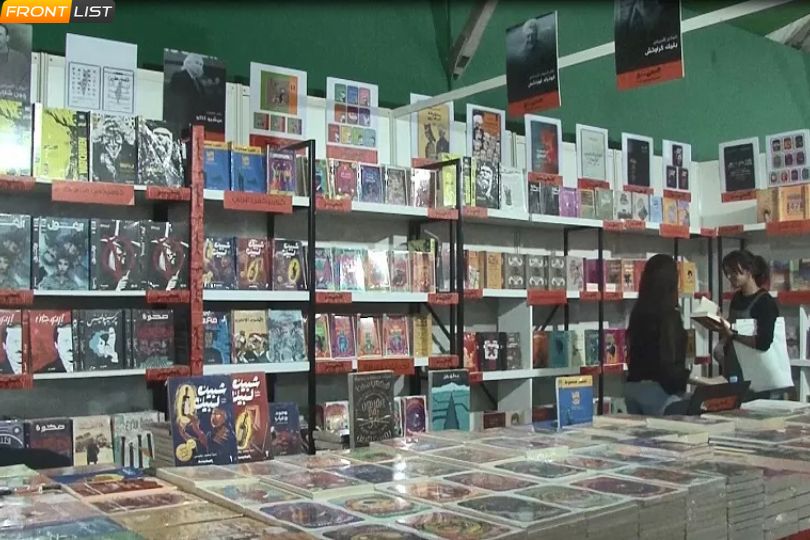Interview with Chitwan Mittal, Founder AdiDev Press
Explore the visionary journey of Chitwan Mittal, Founder of AdiDev Press, as she revolutionizes children's literature with cultural diversity.on Apr 16, 2024

Chitwan Mittal holds a BSc in English Education from Boston University and an MA in Values in Education from the University of London. She is a published author with titles such as Education for the Complete Person, Taittiriya Upanishad, and The Arguments for the Existence of God. Actively involved in children’s education since 2005, she was part of the committee that established the Indian Institute of Teacher Education and the Children’s University by the Government of Gujarat, India. Both institutes are focused on experiential learning and holistic development of children through innovative education tools. She is now foraying into the field of writing children’s picture books. Her books encourage engagement and diversity and focus on value-oriented education, bi-lingual learning, and South Asian culture. She lives between India and Singapore with her husband and two sons, who are her constant source of inspiration.
Frontlist: As an advocate for value-oriented education and experiential learning, what inspired you to transition from academic writing to writing children’s picture books? How do you believe your background in education informs your approach to creating engaging and impactful children’s literature?
Chitwan: As an expat parent, I was looking for books that would introduce my young children to South Asian culture. I couldn’t find what I was looking for, which was picture books that are beautifully produced and tap into universal ideas, while presenting the history and folklore of this part of the world. That’s how AdiDev Press came to be—the result of my quest to find meaningful, enjoyable literature for my kids.
At the same time, the ethos of AdiDev is certainly shaped by my background in education. I believe that the aim of children’s books is to inspire and uplift. At the heart of the human experience are basic universal values. All of our books aim to bring forth the essence of these values in a subtle and effective manner. For example, one of our earliest series of books was inspired by a UNESCO report that identified the four pillars of education as: Learning to Know, Learning to Do, Learning to Live Together and Learning to Be. I found the idea of ‘learning to be’ a useful guide in how to produce literature to help children understand what it means to be human and learn values for life.
Accordingly, we put together a set of board books in rhyme that champion the stories of India’s unsung female scientists and athletes, in order to show kids that big dreams can be achieved and unique pathways can be pursued.
Frontlist: Your books emphasize engagement, diversity, and South Asian culture. Can you share some insights into your creative process when incorporating these themes into your stories? How do you ensure that your books resonate with a diverse audience while celebrating cultural authenticity?
Chitwan: We want our books to showcase South Asian culture in a vibrant, fun new way, from food to culture to festivals, languages and inspirational people. Our themes are varied, but the goal is always to expose children to big ideas in a way that’s accessible. So we make sure that we cut to the core of what we’re trying to say, using vibrant artwork and simple language. That’s what helps us balance the weight of the values we showcase with a lightness of touch in our storytelling.
Our creative process involves choosing stories that we think kids would find exciting or entertaining, but we also make sure to feature topics or ideas that we believe it’s important for kids to know about. One thing I never lose sight of is the intended reader; I always imagine the child’s world when creating books for them, to try and think about what they would find interesting or relatable, rather than just focusing on morals and lessons they should learn.
Our books introduce children to a variety of themes and new vocabulary related to Indian clothes, musical instruments, foods, festivals, colours and numbers in a fun, whimsical manner. We use humour, wordplay, and relatable characters and situations to both remain true to our roots, while also highlighting the qualities that people everywhere share and can identify with.
Frontlist: With the rise of digital media and technology, how do you envision the future of children’s literature evolving? How do you incorporate digital tools and platforms into your storytelling process, if at all, to engage young readers in a digital age?
Chitwan: Personally, my love for reading started because my mother used to make bedtime fascinating with a rich collection of stories. We looked forward to bedtime and waited to find what new story would unravel every night. I think reading aloud to kids when they’re very young is a great way to get them interested early. Our board books are crafted keeping this in mind—the verse style not only keeps the ideas accessible but is also easy and fun to read aloud.
Setting aside time for reading as a family activity is a great way to get kids to associate books with enjoyment and emotional connection. We do incorporate audio, which is a powerful tool when dealing with stories for young children. A lot of our books come with QR codes to free audiobooks, to help with pronunciation of unfamiliar words, but also to help parents and kids enjoy books as an audiovisual experience.
I do see children’s literature becoming more digitally savvy in future in order to provide a holistic reading experience.
Frontlist: Mental health is a significant concern, especially in the realm of children’s education and literature. How do you address themes of emotional well-being and resilience in your picture books? What role do you believe literature plays in promoting positive mental health among young readers?
Chitwan: Literature has always been a great tool with which people can better understand themselves and those around them. Children’s literature, in particular, can help start conversations about difficult topics, and can help children navigate situations that may seem overwhelming.
For instance, a lot of kids find it tough to talk about emotions and parents too are sometimes confused about how to teach their kids to deal with their emotions in a healthy way. That’s why one of our earliest books was one on emotions and how to identify and understand them. We wanted to give kids a relatable story and a lovable character to help them better manage their feelings.
Similarly, our Learning to Be series presents different values, like perseverance, courage, commitment and so on, through the lives of interesting female scientists and athletes. Reading about others’ challenges and how they overcame them can be inspiring and help kids feel more positive about their own lives. Books like these are a valuable way of guiding children towards self-awareness, developing emotional maturity and encouraging good mental health.
Frontlist: As someone who balances writing with advocacy work in education, how do you manage the demands of both roles while prioritizing your own well-being? Can you share any strategies or practices that have been particularly helpful for maintaining a healthy work-life balance?
Chitwan: My kids help me stay grounded. I always ensure that I make time to read with them, play with them and embark on new experiences together. Staying connected with them, and with my wider family, is a good way to maintain work-life balance, as well as forge strong relationships.
Frontlist: Bilingual learning is a prominent feature in your books. How do you navigate the challenges of incorporating multiple languages into your stories while ensuring accessibility for readers from diverse linguistic backgrounds?
Chitwan: I strongly believe in the power of learning the mother tongue, and that’s the impetus behind our bilingual books, which seek to help children and parents with language acquisition. Pagdi for Sinh, One Elephant, Two Monkeys, Animal Band and Colours with Radha Krishna introduce children to vocabulary related to Indian clothes, musical instruments, colours and numbers in a fun, whimsical manner.
Each book presents the text side-by-side in both Hindi and English, while our Prayer series also includes word meanings printed alongside the Hindi text for easy accessibility. We hope that in the future we will be able to publish translations of these books in many other regional Indian languages. We’re already working on bringing out bilingual books featuring other Indian languages.
Frontlist: With World Book & Copyright Day approaching, what message do you have for fellow writers and readers regarding the importance of copyright protection in the literary world? How has copyright awareness impacted your journey as an author, particularly in ensuring the integrity and recognition of your creative works?
Chitwan: Copyright protection is an important part of safeguarding an author’s work from misappropriation and copying. As a writer myself, I know how many hours of hard work go into producing a book, and it’s important for writers to be able to own their intellectual property. Copyright protection ensures that creators receive the recognition and compensation they deserve for their creative works.



.jpg)






.jpg)

.jpg)

.jpg)
.jpg)
.jpg)
.jpg)










Sorry! No comment found for this post.